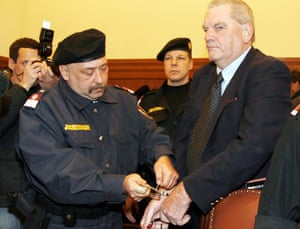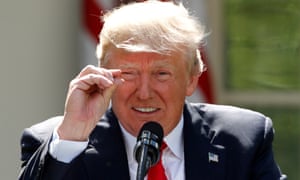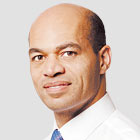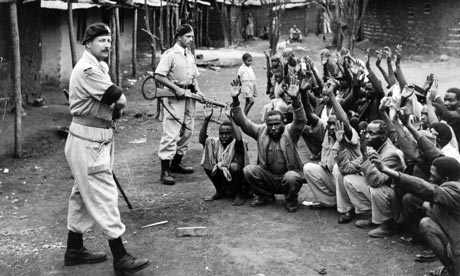
Illustration by Abro
On November 12, 2009, the New York Times (NYT) ran a video report on its website. In it, the NYT reporter Adam B. Ellick interviewed some Pakistani pop stars to gauge how lifestyle liberals were being affected by the spectre of so-called ‘Talibanisation’ in Pakistan. To his surprise, almost every single pop artiste that he managed to engage, refused to believe that there were men willing to blow themselves up in public in the name of faith.
It wasn’t an outright denial, as such, but the interviewed pop acts went to great lengths to ‘prove’ that the attacks were being carried out at the behest of the US, and that those who were being called ‘terrorists’ were simply fighting for their rights. Ellick’s surprise was understandable. Between 2007 and 2009, hundreds of people had already been killed in Pakistan by suicide bombers.
But it wasn’t just these ‘confused’ lifestyle liberals who chose to look elsewhere for answers when the answer was right in front of them. Unregulated talk shows on TV news channels were constantly providing space to men who would spin the most ludicrous narratives that presented the terrorists as ‘misunderstood brothers.’
From 2007 till 2014, terrorist attacks and assassinations were a daily occurrence. Security personnel, politicians, men, women and children were slaughtered. Within hours, the cacophony of inarticulate noises on the electronic media would drown out these tragedies. The bottom-line of almost every such ‘debate’ was always, ‘ye hum mein se nahin’ [these (terrorists) are not from among us]. In fact, there was also a song released with this as its title and ‘message.’
The perpetrators of the attacks were turned into intangible, invisible entities, like characters of urban myths that belong to a different realm. The fact was that they were very much among us, for all to see, even though most Pakistanis chose not to.
Just before the 2013 elections, the website of an English daily ran a poll on the foremost problems facing Pakistan. The poll mentioned unemployment, corruption, inflation and street crimes, but there was no mention of terrorism even though, by 2013, thousands had been killed in terrorist attacks.
So how does one explain this curious refusal to acknowledge a terrifying reality that was operating in plain sight? In an August 3, 2018 essay for The Guardian, Keith Kahn-Harris writes that individual self-deception becomes a problem when it turns into ‘public dogma.’ It then becomes what is called ‘denialism.’
The American science journalist and author Michael Specter, in his book Denialism, explains it to mean an entire segment of society, when struggling with trauma, turning away from reality in favour of a more comfortable lie. Psychologists have often explained denial as a coping mechanism that humans use in times of stress. But they also warn that if denial establishes itself as a constant disposition in an individual or society, it starts to inhibit the ability to resolve the source of the stress.
Denialism, as a social condition, is understood by sociologists as an undeclared ‘ism’, adhered to by certain segments of a society whose rhetoric and actions in this context can impact a country’s political, social and even economic fortunes.
In the January 2009 issue of European Journal of Public Health, Pascal Diethelm and Martin McKee write that the denialism process employs five main characteristics. Even though Diethelm and McKee were more focused on the emergence of denialism in the face of evidence in scientific fields of research, I will paraphrase four out of the five stated characteristics to explore denialism in the context of extremist violence in Pakistan from 2007 till 2017.
The deniers have their own interpretation of the same evidence. In early 2013, when a study showed that 1,652 people had been killed in 2012 alone in Pakistan because of terrorism, an ‘analyst’ on a news channel falsely claimed that these figures included those killed during street crimes and ‘revenge murders.’ Another gentleman insisted that the figures were concocted by foreign-funded NGOs ‘to give Pakistan and Islam a bad name.’
This brings us to denialism’s second characteristic: The use of fake experts. These are individuals who purport to be experts in a particular area but whose views are entirely inconsistent with established knowledge. During the peak years of terrorist activity in the country, self-appointed ‘political experts’ and ‘religious scholars’ were a common sight on TV channels. Their ‘expert opinions’ were heavily tilted towards presenting the terrorists as either ‘misunderstood brothers’ or people fighting to impose a truly Islamic system in Pakistan. Many such experts suddenly vanished from TV screens after the intensification of the military operation against militants in 2015. Some were even booked for hate speech.
The third characteristic is about selectivity, drawing on isolated opinions or highlighting flaws in the weakest opinions to discredit entire facts. In October 2012, when extremists attempted to assassinate a teenaged school girl, Malala Yousafzai, a sympathiser of the extremists on TV justified the assassination attempt by mentioning ‘similar incidents’ that he discovered in some obscure books of religious traditions. Within months Malala became the villain, even among some of the most ‘educated’ Pakistanis. When the nuclear physicist and intellectual Dr Pervez Hoodbhoy exhibited his disgust over this, he was not only accused of being ‘anti-Islam’, but his credibility as a scientist too was questioned.
The fourth characteristic is about misrepresenting the opposing argument to make it easier to refute. For example, when terrorists were wreaking havoc in Pakistan, the arguments of those seeking to investigate the issue beyond conspiracy theories and unabashed apologias, were deliberately misconstrued as being criticisms of religious faith.
Today we are seeing all this returning. But this time, ‘experts’ are appearing on TV pointing out conspiracies and twisting facts about the Covid-19 pandemic and vaccines. They are also offering their expert opinions on events such as the Aurat March and, in the process, whipping up a dangerous moral panic.
It seems, not much was learned by society’s collective disposition during the peak years of terrorism and how it delayed a timely response that might have saved hundreds of innocent lives.
On November 12, 2009, the New York Times (NYT) ran a video report on its website. In it, the NYT reporter Adam B. Ellick interviewed some Pakistani pop stars to gauge how lifestyle liberals were being affected by the spectre of so-called ‘Talibanisation’ in Pakistan. To his surprise, almost every single pop artiste that he managed to engage, refused to believe that there were men willing to blow themselves up in public in the name of faith.
It wasn’t an outright denial, as such, but the interviewed pop acts went to great lengths to ‘prove’ that the attacks were being carried out at the behest of the US, and that those who were being called ‘terrorists’ were simply fighting for their rights. Ellick’s surprise was understandable. Between 2007 and 2009, hundreds of people had already been killed in Pakistan by suicide bombers.
But it wasn’t just these ‘confused’ lifestyle liberals who chose to look elsewhere for answers when the answer was right in front of them. Unregulated talk shows on TV news channels were constantly providing space to men who would spin the most ludicrous narratives that presented the terrorists as ‘misunderstood brothers.’
From 2007 till 2014, terrorist attacks and assassinations were a daily occurrence. Security personnel, politicians, men, women and children were slaughtered. Within hours, the cacophony of inarticulate noises on the electronic media would drown out these tragedies. The bottom-line of almost every such ‘debate’ was always, ‘ye hum mein se nahin’ [these (terrorists) are not from among us]. In fact, there was also a song released with this as its title and ‘message.’
The perpetrators of the attacks were turned into intangible, invisible entities, like characters of urban myths that belong to a different realm. The fact was that they were very much among us, for all to see, even though most Pakistanis chose not to.
Just before the 2013 elections, the website of an English daily ran a poll on the foremost problems facing Pakistan. The poll mentioned unemployment, corruption, inflation and street crimes, but there was no mention of terrorism even though, by 2013, thousands had been killed in terrorist attacks.
So how does one explain this curious refusal to acknowledge a terrifying reality that was operating in plain sight? In an August 3, 2018 essay for The Guardian, Keith Kahn-Harris writes that individual self-deception becomes a problem when it turns into ‘public dogma.’ It then becomes what is called ‘denialism.’
The American science journalist and author Michael Specter, in his book Denialism, explains it to mean an entire segment of society, when struggling with trauma, turning away from reality in favour of a more comfortable lie. Psychologists have often explained denial as a coping mechanism that humans use in times of stress. But they also warn that if denial establishes itself as a constant disposition in an individual or society, it starts to inhibit the ability to resolve the source of the stress.
Denialism, as a social condition, is understood by sociologists as an undeclared ‘ism’, adhered to by certain segments of a society whose rhetoric and actions in this context can impact a country’s political, social and even economic fortunes.
In the January 2009 issue of European Journal of Public Health, Pascal Diethelm and Martin McKee write that the denialism process employs five main characteristics. Even though Diethelm and McKee were more focused on the emergence of denialism in the face of evidence in scientific fields of research, I will paraphrase four out of the five stated characteristics to explore denialism in the context of extremist violence in Pakistan from 2007 till 2017.
The deniers have their own interpretation of the same evidence. In early 2013, when a study showed that 1,652 people had been killed in 2012 alone in Pakistan because of terrorism, an ‘analyst’ on a news channel falsely claimed that these figures included those killed during street crimes and ‘revenge murders.’ Another gentleman insisted that the figures were concocted by foreign-funded NGOs ‘to give Pakistan and Islam a bad name.’
This brings us to denialism’s second characteristic: The use of fake experts. These are individuals who purport to be experts in a particular area but whose views are entirely inconsistent with established knowledge. During the peak years of terrorist activity in the country, self-appointed ‘political experts’ and ‘religious scholars’ were a common sight on TV channels. Their ‘expert opinions’ were heavily tilted towards presenting the terrorists as either ‘misunderstood brothers’ or people fighting to impose a truly Islamic system in Pakistan. Many such experts suddenly vanished from TV screens after the intensification of the military operation against militants in 2015. Some were even booked for hate speech.
The third characteristic is about selectivity, drawing on isolated opinions or highlighting flaws in the weakest opinions to discredit entire facts. In October 2012, when extremists attempted to assassinate a teenaged school girl, Malala Yousafzai, a sympathiser of the extremists on TV justified the assassination attempt by mentioning ‘similar incidents’ that he discovered in some obscure books of religious traditions. Within months Malala became the villain, even among some of the most ‘educated’ Pakistanis. When the nuclear physicist and intellectual Dr Pervez Hoodbhoy exhibited his disgust over this, he was not only accused of being ‘anti-Islam’, but his credibility as a scientist too was questioned.
The fourth characteristic is about misrepresenting the opposing argument to make it easier to refute. For example, when terrorists were wreaking havoc in Pakistan, the arguments of those seeking to investigate the issue beyond conspiracy theories and unabashed apologias, were deliberately misconstrued as being criticisms of religious faith.
Today we are seeing all this returning. But this time, ‘experts’ are appearing on TV pointing out conspiracies and twisting facts about the Covid-19 pandemic and vaccines. They are also offering their expert opinions on events such as the Aurat March and, in the process, whipping up a dangerous moral panic.
It seems, not much was learned by society’s collective disposition during the peak years of terrorism and how it delayed a timely response that might have saved hundreds of innocent lives.






